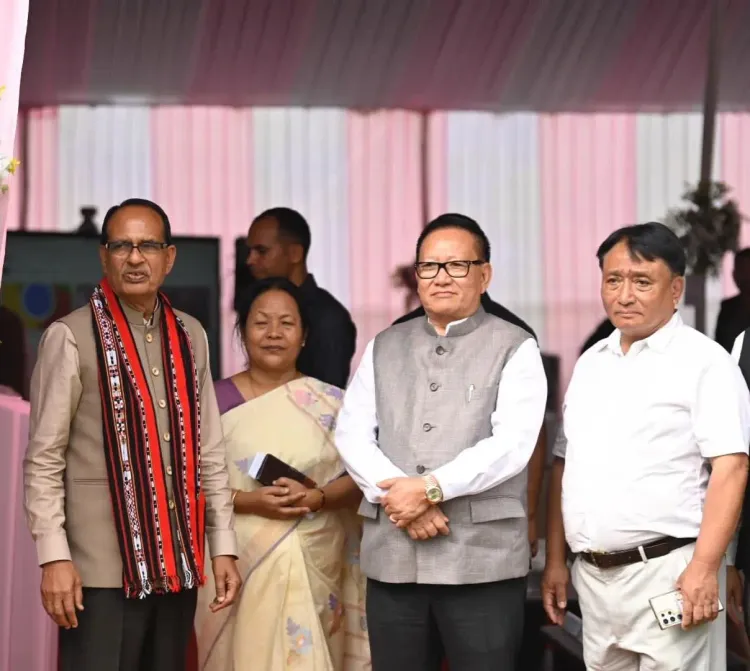What Did Union Agriculture Minister Announce for Nagaland Farmers?

Synopsis
Key Takeaways
- Rs 380 crore allocated for Nagaland farmers.
- Focus on developing a detailed action plan for agriculture.
- Encouragement for collaboration between students and farmers.
- Recognition of 'jhum' farming as a cultural practice.
- Call for establishing a Regional Research Centre for sustainable agriculture.
Kohima, May 16 (NationPress) The Union Minister for Agriculture and Farmers' Welfare, Shivraj Singh Chouhan, unveiled a substantial allocation of Rs 380 crore aimed at enhancing the welfare of farmers in Nagaland. He emphasized the central government's commitment to fostering the state’s overall development.
While inaugurating the administrative and academic block alongside a farmers' fair at the College of Veterinary Sciences and Animal Husbandry in Jalukie, located in the Peren district, Chouhan urged the Nagaland government to formulate a comprehensive action plan focusing on agricultural advancement.
Additionally, he promised that the Central government would provide all necessary support for the state’s developmental needs.
Chouhan also recommended that the state establish a core team in each district, consisting of students, representatives from Krishi Vigyan Kendras (KVKs), and university professors. This team would engage with farmers at least bi-monthly to identify and address their challenges. This initiative is expected to facilitate the identification of suitable agro-climatic plant and animal varieties to boost farmers' income.
The Union Minister noted that the newly inaugurated building stands as a testament to the government's dedication to capacity building, scientific innovation, and self-reliance. He encouraged the students present to become ambassadors of veterinary science, sharing their knowledge with the most remote villages, tribal groups, and farming families across the state.
T.R. Zeliang, the Deputy Chief Minister of Nagaland, highlighted that the state, with over 70% of its population dependent on agriculture, is endowed with rich biodiversity and favorable agro-climatic conditions, offering vast potential for year-round crop cultivation.
He remarked that the traditional practice of 'jhum' (slash and burn agriculture) is not just a farming method but an integral part of the community’s cultural identity, sustaining generations. Despite criticisms regarding its sustainability and efficiency, Zeliang emphasized its significance.
Addressing the shortage of agricultural research and higher education institutions in Nagaland, Zeliang expressed concern that this gap has fostered a sense of deprivation among the youth and farming communities. He stressed the urgent need for region-specific research, education, and capacity building.
He urged the Union Minister to establish a Regional Research Centre focused on Natural Farming of Hill Agriculture in Nagaland, particularly addressing shifting cultivation systems, to support sustainable hill farming through scientific methods.
Nagaland's Governor, La Ganesan, remarked on Prime Minister Narendra Modi's vision for a developed India by 2047, calling students the architects of this dream. He encouraged them to view their education as a national responsibility, rather than just a personal achievement.









